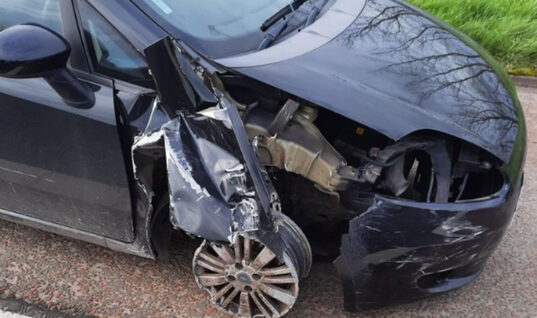The UK new car market declined 2.9 per cent in February, according to data published by the Society of Motor Manufacturers and Traders (SMMT).
Last month saw 79,594 registrations, with the decline driven primarily by weak consumer confidence and uncertainty over what fuel technology to buy, according to the SMMT.
Registrations by private buyers were responsible for the bulk of the overall loss, down some 7.4 per cent as 2,741 fewer people took delivery of new cars.
Fleet demand, however, remained stable, up by 31 registrations.
Demand for both diesel and petrol cars fell in the month, with registrations down 27.1 per cent and 7.3 per cent respectively, and diesel now accounting for just over a fifth of sales.
Hybrids (HEVs) recorded an uplift of 71.9 per cent to 4,154 units, while registrations of zero emission capable cars also continued to enjoy growth, with battery electric vehicles (BEVs) rising more than three-fold to 2,508 units and plug-in hybrids (PHEVs) up 49.9 per cent to 2,058.
However, these vehicles still make up just 5.8 per cent of the market; and BEVs only 3.2 per cent.
‘Zero emission’ vehicles
The news comes as SMMT calls on the Chancellor to use next week’s Budget to announce bold new measures to make new-tech zero emission-capable cars, including plug-in hybrids, more affordable for mass market buyers.
In 2020, manufacturers will bring more than 23 new battery electric and 10 plug-in hybrid electric cars to the UK to add to the more than 65 already on sale, but take up of these new models depends on affordability and the provision of adequate charging infrastructure.
SMMT is calling for the removal of VAT from all new battery electric, plug-in hybrid electric and hydrogen fuel cell electric cars – a move which would cut the purchase price of an average family battery electric run-around by some £5,600.
“Chancellor’s opportunity to reverse this trend”
Mike Hawes, SMMT chief executive, said: “Another month of decline for the new car market is especially concerning at a time when fleet renewal is so important in the fight against climate change.
“Next week’s Budget is the Chancellor’s opportunity to reverse this trend by restoring confidence to the market and showing that government is serious about delivering on its environmental ambitions.
“Industry has invested in the technology, with a huge influx of new zero- and ultra-low emission models coming to market in 2020, and we now need government to match this with a comprehensive package of incentives and infrastructure spending to accelerate demand.
“To drive the transition to zero emission motoring, we need carrots, not sticks – as the evidence shows, talk of bans and penalties only means people hang on to their older, more polluting vehicles for longer. It’s time for a change of approach, which means encouraging the consumer to invest in the cleanest new car that best suits their needs.
“If that is to be electric, government must take bold action to make these vehicles more affordable and as convenient to recharge as their petrol and diesel equivalents are to refuel.”
Share your comments below.







